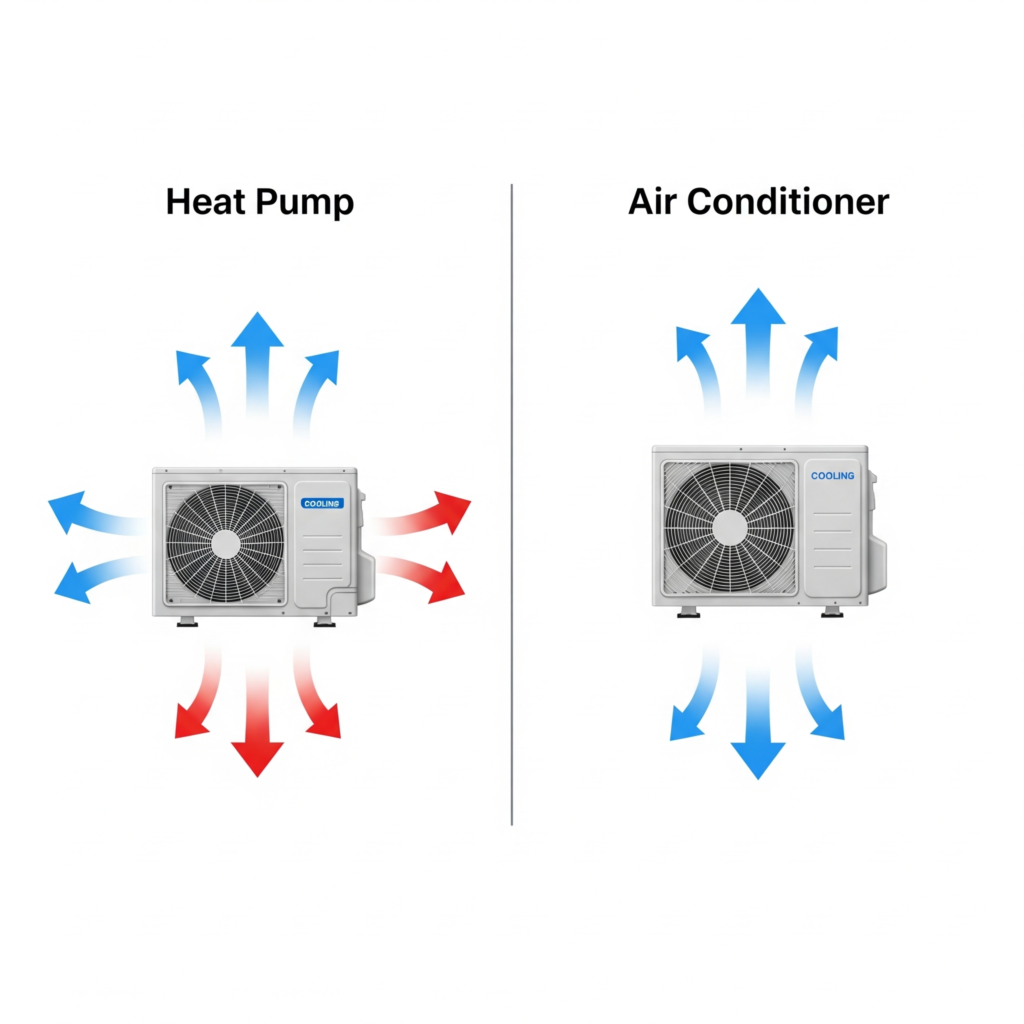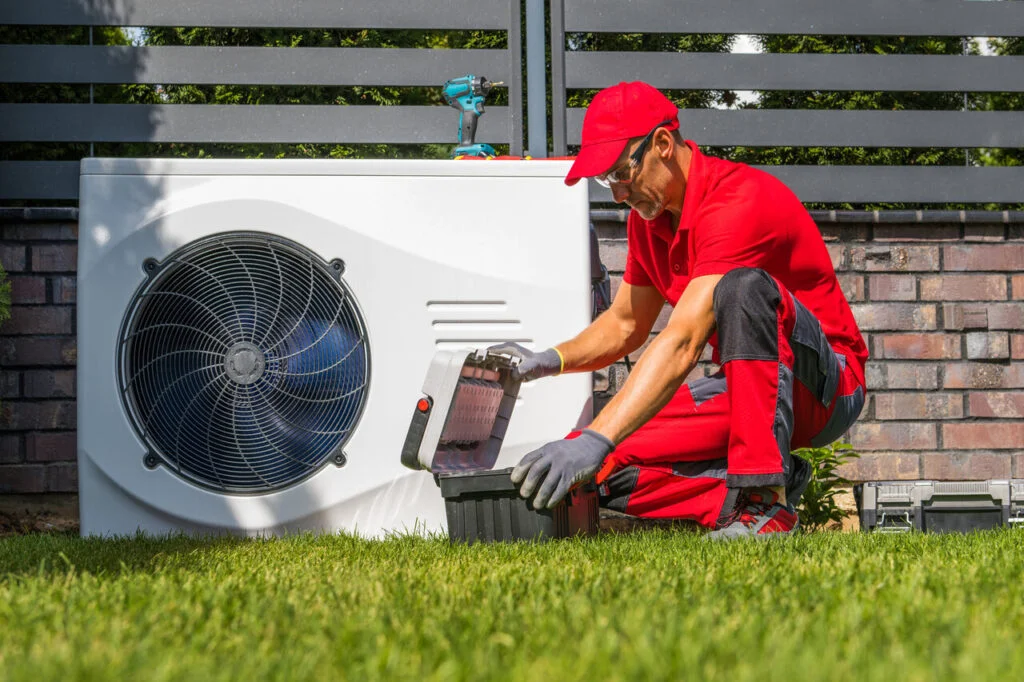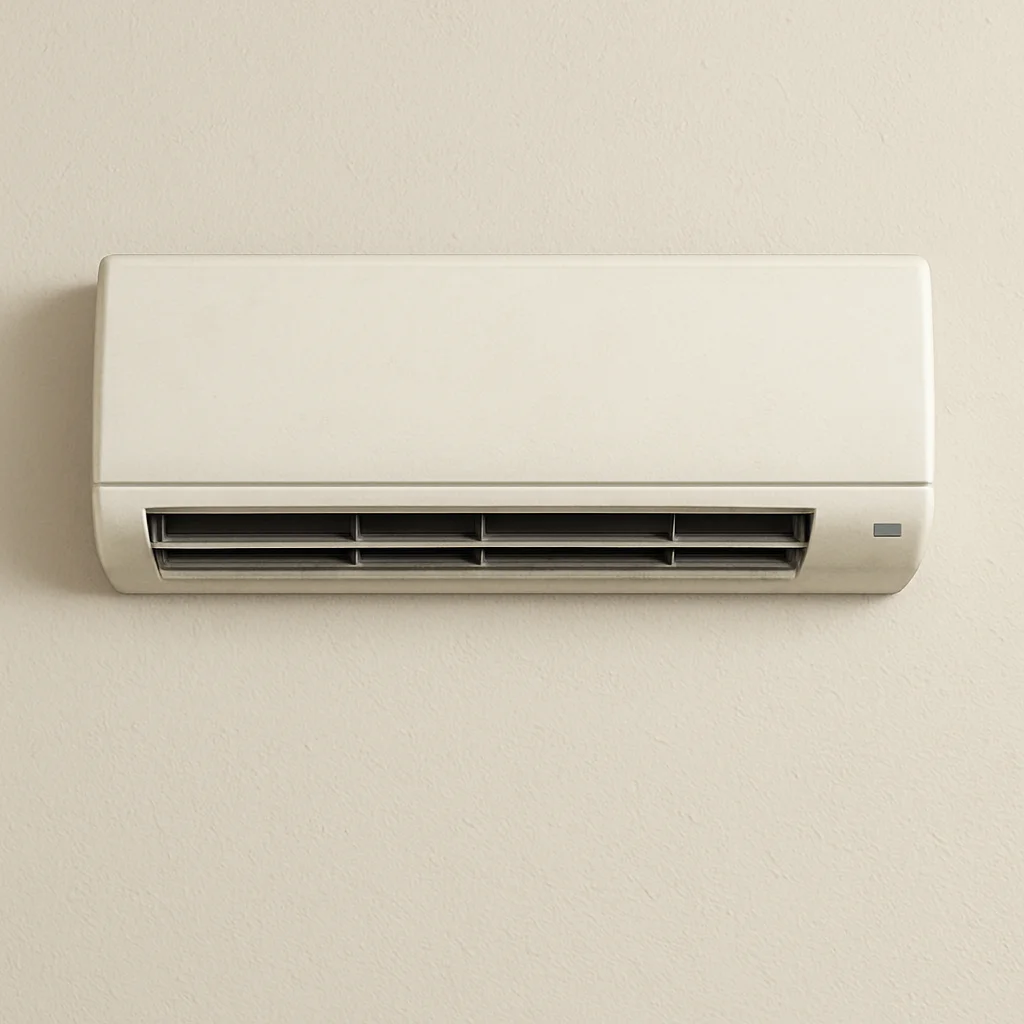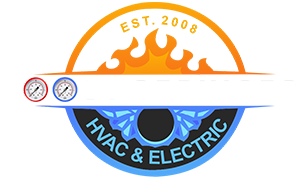TL;DR Summary for Those in a Hurry:
- Heat Pump vs Air Conditioner breaks down the key differences so you can choose the right cooling (and heating) option for your home.
- Learn that heat pumps can both cool and heat, while air conditioners only provide cooling.
- The guide explains how energy efficiency, operating costs, and climate suitability affect which system makes the most sense.
- Use these points to make an informed decision that matches your comfort needs and budget.

Understanding the Heat Pump vs Air Conditioner comparison is essential before diving into the differences. Both heat pumps and air conditioners are designed to regulate the temperature within your home, but they operate differently.
Table of Contents
Heat Pumps vs. Air Conditioners: Key Functions Explained
What Is a Heat Pump?
A heat pump is a versatile system that can both heat and cool your home. It works by transferring heat from one place to another. In the summer, it functions like an air conditioner, removing heat from your home and releasing it outside. In the winter, it reverses this process, extracting heat from the outside air (or ground) and bringing it inside. This makes heat pumps a year-round solution for climate control.
How Heat Pumps Work
Heat pumps operate on the principle of heat transfer. During warmer months, the system extracts heat from indoor air and expels it outside. Conversely, in colder months, it captures available heat from outside air or the ground and moves it indoors. This process is made possible by a refrigerant cycle that efficiently moves heat in the desired direction.
Types of Heat Pumps
There are several types of heat pumps, each suited for different applications and climates. Air-source heat pumps are the most common, extracting heat from the air. Ground-source or geothermal heat pumps tap into the earth’s stable underground temperatures. Lastly, water-source heat pumps use nearby water bodies as a heat exchange medium, offering high efficiency in specific locations.
Advantages of Heat Pumps
Heat pumps offer numerous benefits beyond just heating and cooling. They are known for their energy efficiency, often providing up to three times the energy they consume. Additionally, they contribute to lower carbon footprints and can be integrated with renewable energy sources, enhancing their sustainability appeal. This makes them an attractive option for eco-conscious homeowners.

What Is an Air Conditioner?
An air conditioner, on the other hand, is primarily designed to cool your home. It extracts warm air from your interior, passes it over refrigerant-filled coils to cool it down, and then redistributes the cooled air back into your living space. Unlike heat pumps, air conditioners do not have a heating function unless paired with a separate heating system.
How Air Conditioners Work
Air conditioners function by removing heat from indoor air through a refrigeration cycle. Warm air is drawn from the home, cooled by passing over evaporator coils containing refrigerant, and then circulated back into the living spaces. The absorbed heat is expelled outdoors, ensuring a comfortable indoor environment even during sweltering temperatures.
Types of Air Conditioners
Air conditioners come in various forms to suit different needs. Central air conditioning systems cool entire homes through ductwork. Window units offer a compact solution for single rooms, while split systems provide flexibility with separated indoor and outdoor components. Each type has its advantages, depending on the size and layout of your home.
Advantages of Air Conditioners
Air conditioners excel in their cooling capabilities, making them indispensable in regions with hot climates. They quickly reduce indoor temperatures to comfortable levels, improving indoor air quality and humidity control. When paired with programmable thermostats, they can also contribute to energy savings by optimizing cooling schedules.
Key Differences Between Heat Pumps and Air Conditioners

Functionality and Versatility
One of the main differences lies in their functionality. Heat pumps offer both heating and cooling capabilities, while air conditioners are limited to cooling. This makes heat pumps a more versatile option for homes in climates with moderate heating needs.
Year-Round Use
Heat pumps stand out for their ability to provide both heating and cooling throughout the year. This dual functionality eliminates the need for separate systems, making them a convenient all-in-one solution. Air conditioners, however, require additional heating systems to provide year-round comfort, which can mean more complexity and potential maintenance issues.
Adaptability to Climate
The adaptability of heat pumps to different climates is another distinguishing factor. In areas with mild winters, heat pumps can efficiently manage temperature variations. Conversely, air conditioners are more prevalent in regions where cooling needs dominate, with heating systems like furnaces handling the winter chill.
Installation and Space Requirements
The integration of heating and cooling in a single system means heat pumps often require less space and fewer installation components compared to separate air conditioning and heating systems. This can be a significant advantage in homes with limited space for HVAC equipment.
Energy Efficiency
Heat pumps are generally more energy-efficient compared to air conditioners, especially in moderate climates. Since they transfer heat rather than generate it, they can provide up to three times more heating energy than the electricity they consume. This can lead to significant savings on energy bills over time.
Comparative Energy Use
The efficiency of heat pumps lies in their ability to move heat rather than generate it through combustion, which air conditioners rely on when paired with furnaces. This results in lower energy consumption, particularly in moderate climates where extreme temperature fluctuations are rare.
Seasonal Energy Efficiency
Heat pumps shine in energy efficiency metrics due to their seasonal versatility. Their Seasonal Energy Efficiency Ratio (SEER) and Heating Seasonal Performance Factor (HSPF) ratings often surpass those of air conditioners, reflecting their superior performance in both cooling and heating modes.
Environmental Impact
By using renewable energy sources and reducing reliance on fossil fuels, heat pumps contribute significantly to reducing a home’s carbon footprint. This environmental advantage, combined with lower energy bills, makes them an appealing choice for environmentally-conscious homeowners.
Climate Suitability
Heat pumps are ideal for regions with mild winters. In extremely cold temperatures, their efficiency can decrease, and a supplemental heating system may be necessary. Air conditioners, paired with a furnace, are often preferred in areas with harsh winters where heating demand is high.
Performance in Cold Climates
In colder regions, heat pumps might require supplemental heating systems to maintain efficiency, such as electric resistance heaters or hybrid systems that combine with gas furnaces. This ensures consistent performance even when outdoor temperatures plummet.
Air Conditioners in Hot Climates
Air conditioners excel in hot, humid climates where cooling is the primary concern. They effectively dehumidify indoor air, enhancing comfort levels during summer months. However, additional heating systems are necessary for these areas during winter, increasing overall system complexity.
Hybrid Systems
Hybrid systems offer a solution for regions with fluctuating climates, combining the strengths of both heat pumps and traditional heating systems. These systems automatically switch between heating sources based on temperature, optimizing energy use and comfort.
Cost Considerations
The initial cost of a heat pump can be higher than that of an air conditioner. However, the long-term savings from its energy efficiency can offset the upfront investment. Air conditioners, coupled with a separate heating system, may involve higher operational costs in the long run.
Upfront Investment
While heat pumps generally require a higher initial investment, they offer savings over time through lower utility bills. This long-term financial benefit can outweigh the upfront costs, especially in energy-conscious households.
Operational and Maintenance Costs
Heat pumps often incur lower operational costs due to their efficiency, translating into savings on monthly energy bills. Additionally, maintaining a single system can be more cost-effective than managing separate heating and cooling units.
Incentives and Rebates
Many regions offer financial incentives, rebates, or tax credits for installing energy-efficient systems like heat pumps. These programs can significantly reduce the overall cost of installation, making heat pumps a more attractive option for budget-conscious homeowners.
Consider Your Climate
When choosing between a heat pump and an air conditioner, consider the climate in your area. If you experience mild winters, a heat pump could be the perfect all-in-one solution. For colder climates, you might opt for an air conditioner combined with a reliable heating system.
Regional Climate Analysis
Conduct a thorough analysis of your region’s climate patterns to determine the most appropriate system. Heat pumps thrive in areas with mild winters and moderate summers, while air conditioners paired with furnaces suit regions with distinct seasonal extremes.
Home Insulation and Energy Needs
Evaluate your home’s insulation and energy requirements. Well-insulated homes in temperate climates can benefit greatly from the efficiency of heat pumps, whereas homes in colder areas may require the robust heating capabilities of a furnace.
Future Climate Trends
Consider potential future climate changes, such as increasing temperatures or shifts in seasonal patterns. Heat pumps offer flexibility and adaptability, which can be advantageous as weather conditions evolve over time.
Evaluate Energy Efficiency
Think about your energy efficiency goals. If reducing your environmental impact and energy bills is a priority, a heat pump may be the better choice due to its efficient operation.
Environmental Goals and Impact
Prioritize your environmental goals by choosing a system that aligns with your values. Heat pumps minimize environmental impact through reduced energy consumption and compatibility with renewable energy sources.
Long-term Savings Potential
Calculate the long-term savings potential of each system by comparing their energy efficiency ratings and projected utility costs. Heat pumps often emerge as the more economical choice over time, especially when factoring in energy price fluctuations.
Compatibility with Smart Technologies
Explore the compatibility of HVAC systems with smart home technologies. Heat pumps can integrate seamlessly with smart thermostats and energy management systems, enhancing their efficiency and offering greater control over energy use.
Assess Your Budget
Examine your budget not only for the initial installation but also for long-term operational costs. While heat pumps might require a larger upfront investment, their efficiency can lead to savings over time.
Initial Installation Costs
Consider the initial installation costs of each system, including equipment, labor, and any necessary modifications to your home’s infrastructure. Heat pumps may cost more initially, but their comprehensive functionality can justify the investment.
Financing Options
Explore financing options, such as loans or payment plans, to ease the burden of upfront costs. Many HVAC companies, including BOOST SERVICES, offer flexible financing solutions to accommodate different budgets.
Long-term Cost Projections
Project the long-term costs associated with each system, taking into account maintenance, repairs, and energy consumption. Heat pumps often deliver better value over their lifespan, making them a sound financial investment.
Trust BOOST SERVICES for Your HVAC Needs
At BOOST SERVICES, we understand that choosing the right HVAC system is a significant decision. We are committed to providing personalized solutions that meet your specific needs. Our team of experts is ready to assist you with professional advice and top-notch installation services.
Expert Consultation and Custom Solutions
Our experienced team offers expert consultations to help you choose the most suitable HVAC system for your home. We provide tailored solutions that address your unique requirements, ensuring optimal performance and satisfaction.
Comprehensive Installation and Maintenance
BOOST SERVICES specializes in the installation and maintenance of both heat pumps and air conditioning systems. Our skilled technicians ensure precise installations and provide regular maintenance to keep your system running efficiently.
Commitment to Customer Satisfaction
We prioritize customer satisfaction and strive to exceed expectations with every project. Our dedication to quality service, community-oriented practices, and transparent communication sets us apart as a trusted HVAC contractor in Pasadena and surrounding areas.
Conclusion
When it comes to choosing between a heat pump and an air conditioner, understanding the key differences can help you make the best decision for your home. Consider factors such as climate, energy efficiency, and budget to determine the most suitable option for your needs.
For expert guidance and reliable HVAC solutions, contact BOOST SERVICES today. Our team is ready to provide you with the quality and professionalism you deserve. Let us help you achieve comfort and efficiency in your home.
For more information or to schedule a consultation, call us at:
- 818-277-5056
- 747-264-6358
Let BOOST SERVICES be your go-to source for all your heating and cooling needs. We look forward to serving you!
Heat Pump vs Air Conditioner highlights how heat pumps offer year-round comfort and efficiency, while traditional AC units focus solely on cooling. Understanding these distinctions helps you pick the best system for your household.
FAQ:
What is the main difference between a heat pump and an air conditioner?
A heat pump can both cool and heat your home by reversing the refrigerant cycle, while an air conditioner only provides cooling and needs a separate heating system for winter.
How does a heat pump heat a home in winter?
Heat pumps extract heat from the outside air and transfer it indoors, even in cooler weather, using a reversing valve that changes the direction of refrigerant flow.
Are heat pumps more energy efficient than air conditioners?
Yes — heat pumps are generally more energy efficient overall because they move heat instead of generating it, which can lower long-term energy costs, especially in moderate climates.
Why might an air conditioner still be a good choice?
Air conditioners typically cost less upfront, are simpler to install, and excel at cooling, which makes them a strong option if you already have a separate heating system.
Do heat pumps work well in all climates?
Heat pumps perform best in moderate climates, where they can efficiently heat and cool; in very cold climates, their heating efficiency can decline and supplemental heat may be required.
How do installation and operating costs compare?
Heat pumps usually have higher installation costs because of their dual function, but they can result in lower operating costs over time due to energy savings compared to separate AC and heating systems.

